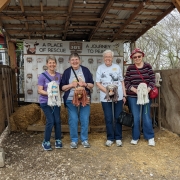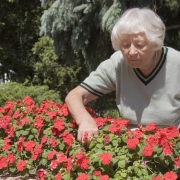Staying Active and Engaged in Retirement: Pursuing Passions and Hobbies in Senior Housing Communities
Retirement is a significant milestone that not everyone is privileged to experience. With no more demands of working, retirement is the perfect opportunity to rekindle old hobbies or discover new passions that have been in the back seat due to the demands of daily hustling.
Whether it is performance or visual arts, gardening, staying active through fitness programs, volunteer time, playing a musical instrument, or anything that brings joy to your heart, retirement gives retirees ample time to rediscover old hobbies while at the same time alleviating signs of loneliness, boredom, and isolation.
Benefits of Staying Active and Engaged in Senior Housing
As humans age, bones and muscles also weaken. Bones become brittle, and muscles gradually lose strength and function. Although these aging symptoms cannot be reversed, they can be managed.
Staying active and engaged while in senior housing benefits the seniors’ physical, emotional, and mental health. A simple physical activity, when done consistently, can positively impact the residents’ quality of life.
First, regular physical activity maintains strength, mobility, and flexibility. Whether it is a walk in the garden, dancing, swimming, or light exercises, it promotes better balance and coordination and prevents slips and falls, which are very common as people age.
Physical activity lowers the risks of chronic diseases like diabetes, heart problems, and stroke.
Being physically active triggers the release of feel-good hormones, reducing stress, depression, and anxiety. Physical activity also promotes a better sleeping routine, allowing the mind to rest and recharge.
Engaging in physical activities while in senior housing allows residents to meet new friends while strengthening the bond with their current network. Regular social engagement builds meaningful connections and benefits mental and emotional well-being.
By keeping healthy mental, emotional, and physical health, seniors will likely enjoy fulfilling lives while doing what they love in retirement.
Pursuing Passions and Hobbies in Retirement
People may grow older, but this should not hinder them from trying new things and discovering new passions. Turn boring days into fun moments while you learn and discover what you can do.
Pursuing hobbies while in senior housing is a form of self-expression. Regardless of what hobby you pursue, it can boost your confidence and self-worth.
Joining clubs or groups is an opportunity to connect with like-minded residents and forge meaningful connections. Join senior social clubs, religious groups, travel clubs, fitness clubs, and other groups where you can socialize, get active, and forge friendships.
Or you might want to use modern technology and search the Internet for Internet-based lessons or clubs so you can connect with people of the same interest regardless of location. Participating in online clubs keeps residents in senior housing mentally stimulated without leaving the comforts of their homes.
Furthermore, starting a new hobby stimulates your brain and prevents cognitive decline. Hobbies or intellectually stimulating games are known to improve memory retention.
Active and engaged in retirement promotes social interaction, mental stimulation, and self-expression for seniors to live fulfilling years.
Click here to learn more about the exceptional senior care offered at Richmont Senior Living!
Richmont Senior Living is proud to serve Ashland, NE and the surrounding cities: Memphis, Springfield, South Bend, Greenwood, Murdock, Waverly, Murdock, Ithaca, and Chalco






